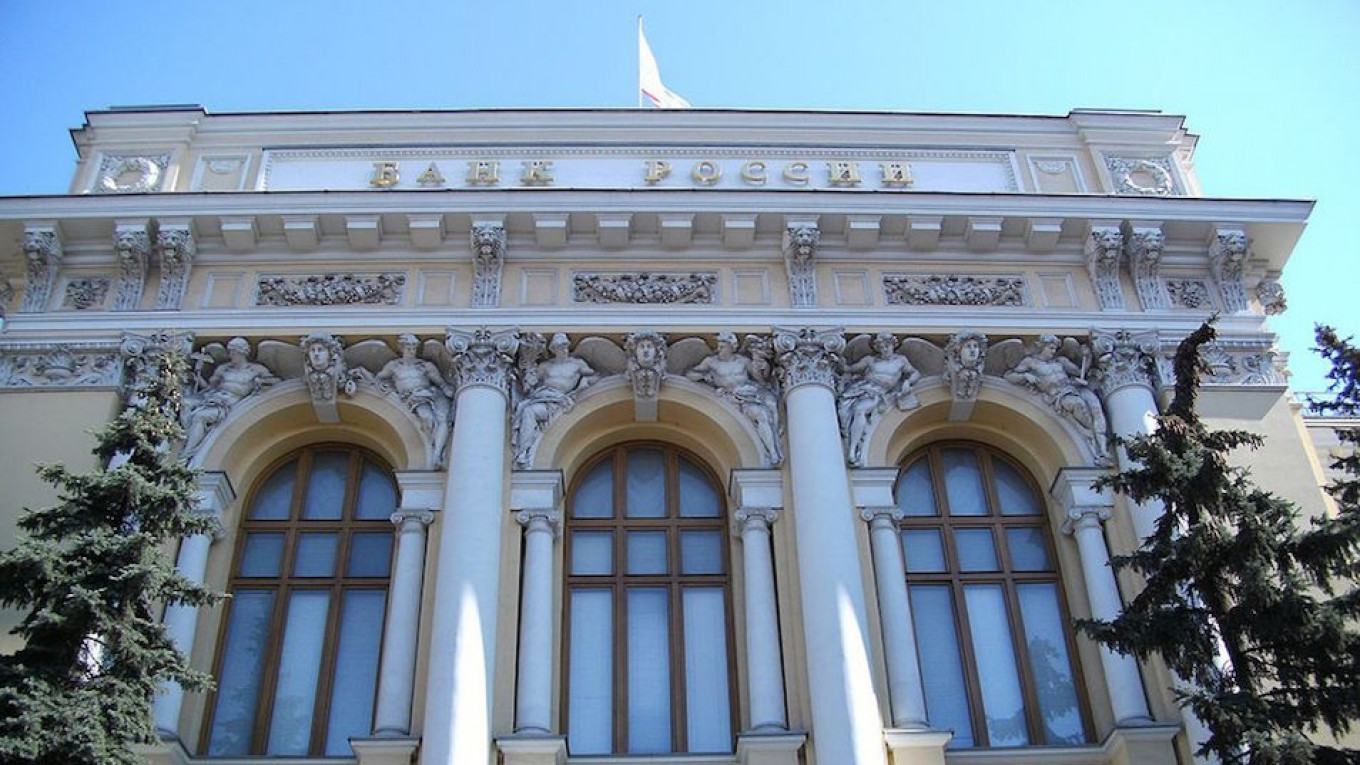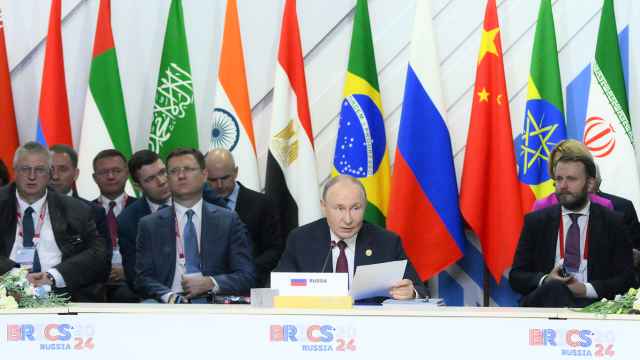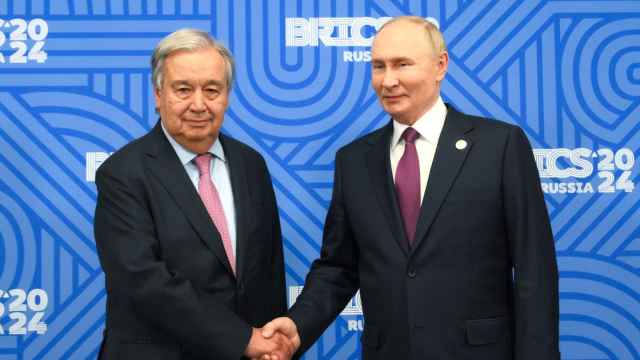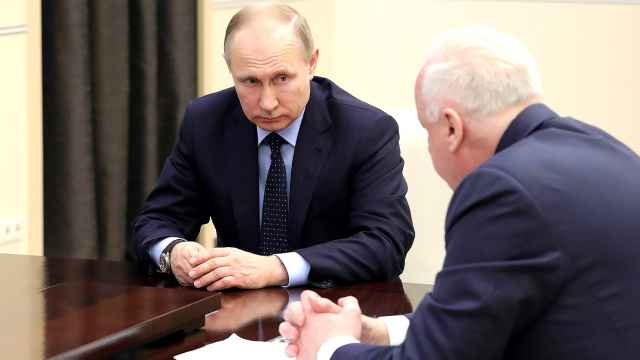A sharp escalation in sanctions rhetoric this month from the U.S. Congress and State Department led to an immediate drop in the value of the ruble and the shares of leading Russian companies.
Conventional wisdom holds that these are temporary fluctuations, and that the exchange rate and securities values will rebound in time. That might not be true in this case, however. The new set of U.S. sanctions affects the areas that are most vital to Russia’s macroeconomic stability.
Foreign investment in Russia’s sovereign ruble debt totals approximately $30 billion and includes significant stakes in such flagships of the domestic banking system as Sberbank among others. There are also investments in the stocks and bonds of other domestic issuers.
How should foreign investors act, having learned that U.S. lawmakers intend to prohibit them from buying Russian debt? And how should Sberbank — in which outside financiers have invested in the expectation of seeing dividends and the growth of capitalization — conduct operations in dollars? Their first step is to gauge just how serious the U.S. authorities are in their intentions.
And what do investors find? They see a consistent downward trend in Russian-U.S. relations in which neither side gives the slightest ground, both seemingly intent on inflicting as much damage as possible on the other. What they see suggests that the U.S. will eventually apply the sanctions in some form.
It is apparently too late now to hope that a less drastic scenario might unfold. Prime Minister Dmitry Medvedev has said that the U.S. declared economic war against Russia, he has said that possible countermeasures could be political, not exclusively economic, and even alluded to other avenues by which Moscow might take action.
In these conditions, all investors, domestic and especially foreign, have little choice but to liquidate their Russian holdings as quickly as possible. This is exactly what happened last week.
Russia’s entire investment portfolio of more than $70 billion – plus $30 billion of upcoming payments on outstanding corporate debts – is at risk. This is more than the country’s balance of payments can handle, even at current oil prices – unless, as is very unlikely, the authorities pour currency reserves into propping up the ruble. The devaluation of the ruble is therefore necessary to cut imports and make ends meet in the balance of payments.
What happens when the ruble falls? It results in huge losses for exporters, the federal budget, companies catering to domestic demand and individual households because a weaker ruble causes prices to rise and demand and consumption to therefore decline.
Under these circumstances, the fiscal authorities should pursue a flexible policy that prevents a major decline in real incomes due to the sanctions. First, the Finance Ministry should halt all inflationary actions that negatively affect the balance of payments or contribute to the ruble’s decline. In other words, it should stop buying up currency.
Second, the Bank of Russia should buy federal loan bonds on the secondary securities market to prevent them from depreciating excessively – a situation that would be fraught with losses for the domestic banking system, including the state banks on which that system is based.
Make no mistake – their problems are our problems. Ordinary Russians will suffer if those banks go under. That risk is real. State-owned banks might be prohibited from settling accounts in dollars, an essential activity for their domestic clients. If that threat becomes a reality, the subjects of foreign economic activity will have to transfer their foreign currency accounts to non-state banks and repay or convert foreign currency loans into rubles at once.
The same is generally true for those with deposits in dollars. All this will weaken the balance sheets, profitability and capital of state-owned banks. Keeping them afloat would require taxpayer money. The market is waiting now for signs of whether this negative trend will continue, and so far, prospects for the ruble do not look good.
A Message from The Moscow Times:
Dear readers,
We are facing unprecedented challenges. Russia's Prosecutor General's Office has designated The Moscow Times as an "undesirable" organization, criminalizing our work and putting our staff at risk of prosecution. This follows our earlier unjust labeling as a "foreign agent."
These actions are direct attempts to silence independent journalism in Russia. The authorities claim our work "discredits the decisions of the Russian leadership." We see things differently: we strive to provide accurate, unbiased reporting on Russia.
We, the journalists of The Moscow Times, refuse to be silenced. But to continue our work, we need your help.
Your support, no matter how small, makes a world of difference. If you can, please support us monthly starting from just $2. It's quick to set up, and every contribution makes a significant impact.
By supporting The Moscow Times, you're defending open, independent journalism in the face of repression. Thank you for standing with us.
Remind me later.






